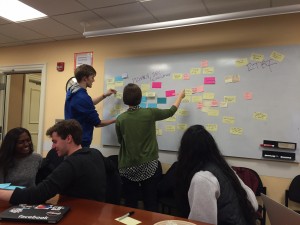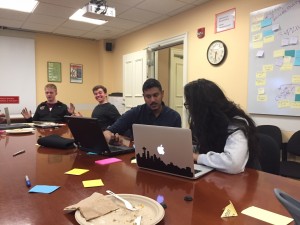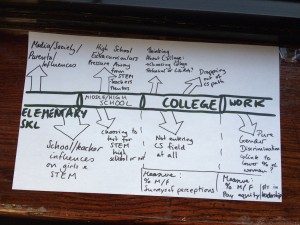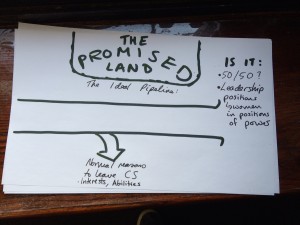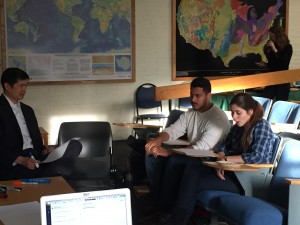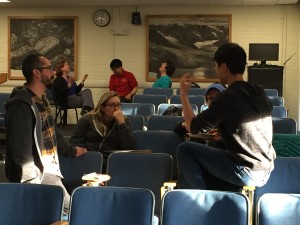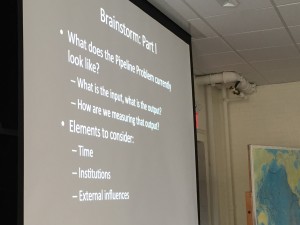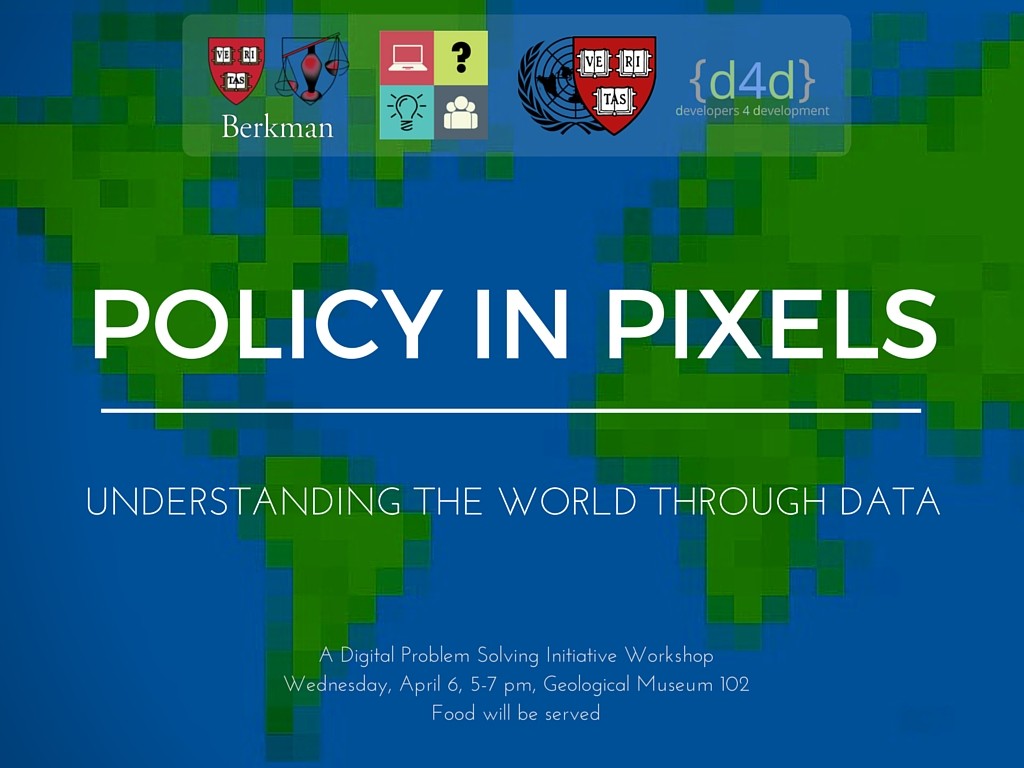Upcoming Events
- Workshop: March 30, 5-7pm: The Pipeline Problem in Computer Science (RSVP)
- Workshop: April 6, 5-7pm: Internet Monitor Workshop (RSVP)
- Speaker: April 11, noon-1pm: Online Violence Against Women & Emerging Legal Protections: A Conversation with Congresswoman Katherine Clark (RSVP)
- Workshop: April 13, 5-7pm: Women’s Law Association/Lumen (RSVP)
- Workshop: April 20: metaLab: future of email (RSVP)
What is DPSI?
Smartphones, smartwatches, and even smart drones… new technologies are so rapidly integrated into everyday life that it is sometimes difficult to pause and take note of their potentials and pitfalls. We want to hit the pause button to ask questions, discuss, and even solve the problems that are sometimes overlooked in the rapidly growing technology and cyberspace sphere. As we question, let’s make things, reflect on how we made them, and learn from the process itself. We are the Berkman Center’s Digital Problem-Solving Initiative.
In Spring 2016, we will be holding several workshops ranging in topics from the future of email (what should happen to your digital legacy after death?) to the right to biodata access (how much should FitBit really know about you?) to many more. These 2-hour workshops will propose a question, give time for discussion, and brainstorm – or even create – possible answers. We’ve invited student groups, Berkman researchers, and other affiliates to join in on the conversation. Through the lens of these different topics, let’s explore various skills related to design-thinking as a problem-solving protocol, such as paper prototyping, rapid iteration, and more. This is a unique opportunity to invent, build, and shape the increasingly digital environment in which you live, learn, work, and create.
If you would like to get involved and receive updates, please sign up here.


